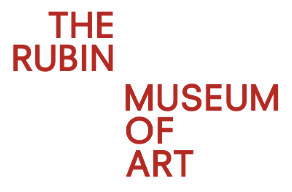Media
Contact: (not for publication)
Nancy
Netzer, Director
netzer@bc.edu;
617.552.8587
Public Contact:
617.552.8100; artmuseum@bc.edu
mcmullenmuseum.bc.edu
THE MCMULLEN MUSEUM OF ART AT BOSTON COLLEGE PRESENTS GATEWAY TO HIMALAYAN ART,
A TRAVELING EXHIBITION FROM THE RUBIN MUSEUM OF ART
September 5–December 10, 2023
Chestnut Hill, MA (August 2023) — The McMullen Museum of Art at Boston College presents Gateway to Himalayan Art, a traveling exhibition organized by the Rubin Museum of Art that introduces the main forms, concepts, meanings, and traditions of Himalayan art and cultures. The exhibition features 101 objects from the Rubin Museum’s collection as well as multimedia elements—audio, videos, essays, maps, and more—from the Rubin’s recently launched educational initiative, Project Himalayan Art, a resource designed to support the inclusion of Tibetan, Himalayan, and Inner Asian art and cultures into undergraduate teaching on Asia.
The McMullen Museum is the first New England venue to host Gateway to Himalayan Art. The exhibition will be on view in the McMullen Museum’s Daley Family and Monan Galleries from September 5 to December 10, 2023.
“Gateway to Himalayan Art will engage visitors, especially students, with a multitude of new approaches, ranging from aesthetic and spiritual to technical, for understanding works of art from Bhutanese, Indian, Tibetan, and Nepalese cultures,” said Nancy Netzer, Inaugural Robert L. and Judith T. Winston Director and Professor of Art History. “The McMullen is honored to present the Rubin Museum of Art’s exhibition, comprising more than one hundred objects from its outstanding collection, accompanied by their exemplary didactics, digital platform, and publication.”
Gateway to Himalayan Art, which is modeled on the Rubin Museum of Art’s cornerstone exhibition of the same title, invites visitors to enter into the art and cultures of the greater Himalayan region—Indian, Nepalese, Bhutanese, Tibetan—and the interrelated Mongolian and Chinese traditions. Much of Himalayan art is informed by Buddhist, Hindu, and Indigenous religions, and images play a prominent role in cultural practices.
The exhibition highlights the fundamental visual language and meanings of Himalayan art, the materials and techniques used, and the purposes for the creation of these objects, often in the context of religious and secular well-being. It also includes voices from Himalayan artists and contemporaries, along with connections to related digital content to provide more information.
Gateway to Himalayan Art features traditional scroll paintings (thangka), sculptures in various media, medical instruments, and ritual objects. Among the featured installations are in-depth displays that explain the process of Nepalese lost-wax metal casting and the stages of Tibetan thangka painting.
Gateway to Himalayan Art is an integral component of the Rubin Museum’s Project Himalayan Art, a three-part initiative that also includes the publication Himalayan Art in 108 Objects and a digital platform, a hub for the study of Himalayan art. Together they provide introductory resources for learning about and teaching Himalayan art, with focus on cross-cultural exchange with Tibet at the center, and Buddhism as the thread that connects these diverse cultures.
“Project Himalayan Art has been over three years in the making and is a capstone in the Rubin Museum’s efforts to expand awareness and appreciation of Himalayan art and cultures on a global level,” says Rubin Museum of Art Executive Director Jorrit Britschgi. “We are thrilled to bring the Gateway to Himalayan Art exhibition and its accompanying rich resources to Boston College and for students, teachers, and visitors from the surrounding community to discover and deepen their understanding of Asian art.”

Support
Leadership support for Project Himalayan Art is provided by the Henry Luce Foundation.
Project Himalayan Art has been made possible in part by a major grant from the National Endowment for the Humanities: Democracy demands wisdom.
This project is supported in part by the National Endowment for the Arts.
Lead support is provided by the Ellen Bayard Weedon Foundation, Bob and Lois Baylis, Barbara Bowman, the E. Rhodes & Leona B. Carpenter Foundation, Noah P. Dorsky, Fred Eychaner, Christopher J. Fussner, the Estate of Lisina M. Hoch, Matt and Ann Nimetz, The Randleigh Foundation Trust, Shelley and Donald Rubin, and Jesse Smith and Annice Kenan.
Major support is provided by Daphne Hoch Cunningham and John Cunningham, Stephen and Sharon Davies, the Edward and Elizabeth Gardner Foundation, Mimi Gardner Gates, Hongwei Li, the Monimos Foundation, Edward O’Neill, The Prospect Hill Foundation, Sarah and Craig Richardson, Rossi & Rossi, the Andrew Sabin Family Foundation, Namita and Arun Saraf, Eric and Alexandra Schoenberg, Eileen Caulfield Schwab, UOVO, Sandy Song Yan, and the Zhiguan Museum of Art.
Special support is provided by:
Dr. Bibhakar Sunder Shakya, to honor the memory and legacy of Professor Dina Bangdel, art historian, curator, cultural activist, and educator from Nepal.
Samphe and Tenzin Lhalungpa, to honor the memory and works of L.P. Lhalungpa, Tibetan scholar, broadcaster, and educator.
Boston College and the Patrons of the McMullen Museum have provided major support for the McMullen Museum installation and programming.

Any views, findings, conclusions, or recommendations expressed in this initiative, do not necessarily represent those of the National Endowment for the Humanities.
McMullen Museum of Art
The McMullen Museum aims to cultivate learning, celebrate artistic excellence, explore the visual traditions of diverse cultures, and inspire transdisciplinary faculty and student research based on the visual arts. The McMullen offers exhibition-related programs and resources for diverse audiences of all ages on campus, in the Greater Boston area, and beyond.
The Museum mounts exhibitions of international scholarly importance from all periods and cultures of the history of art. In keeping with the University’s central teaching mission, exhibitions are accompanied by academic catalogues and related public programs. The McMullen Museum of Art was named in 1996 for the late BC benefactor, trustee, and art collector John J. McMullen and his wife Jacqueline McMullen. In 2005, the McMullen Family Foundation provided a lead gift to renovate and build an addition to the Museum’s new venue at 2101 Commonwealth Avenue. Designed in 1927 in the Roman Renaissance Revival style by architects Maginnis and Walsh, it originally served as the home of Boston’s cardinal archbishops. The renovation was completed in spring 2016 and opened to the public on September 12, 2016.
Rubin Museum of Art
The Rubin Museum of Art in Chelsea, New York City, explores and celebrates Himalayan art, cultures, and ideas across history and into the present. With its globally renowned collection, centered largely around art from the Tibetan Plateau, the Rubin fosters understanding and appreciation of the art by interpreting and relating it to our shared human experience today. Inspired by the tenets of Buddhism, Hinduism, and indigenous religions, and aligned with ongoing research into learning, behavior, and the brain, the Rubin offers innovative exhibitions and programs that examine provocative ideas across the arts and explore the mind. Through this work, the Museum serves as a space for reflection and personal transformation, opening windows to inner worlds so visitors can better navigate outer ones.
Media Contacts
McMullen Museum contact: Kate Shugert | Manager of Publications & Exhibitions,
617.552.4676, kate.shugert@bc.edu
[Media Note: A selection of press images and captions is available here. Please email Kate Shugert with questions.]
Rubin Museum contact: Sandrine Milet | Senior Manager, Communications & Marketing,
212.620.5000 x228, press@rubinmuseum.org
Accompanying Free, Public Events
In-person and virtual public programming is planned for the general public and museum Members. For more information, and to sign up for those events that require advance registration, please visit the McMullen Museum Events Calendar. More events will be added leading up to the exhibition; visit the McMullen website and subscribe to the McMullen mailing list for programming updates.
Additional Digital Resources
Visit McMullen From Home for recordings of all lectures as well as an archive of virtual walkthroughs, digital exhibition catalogues, podcasts, interactive spotlights, and more. View and search the McMullen’s permanent collection database.
McMullen Museum Hours and Tours
Admission is free; wheelchair accessible. Located at 2101 Commonwealth Avenue, Boston, MA 02135, on BC’s 65-acre Brighton Campus. Hours during this exhibition: Monday–Friday, 10 a.m. to 5 p.m., Saturday–Sunday, noon to 5 p.m.; the Museum will be closed: October 9 and November 23–24, 2023. Docent-led tours will take place every Sunday at 2 p.m., beginning September 24. Contact: artmuseum@bc.edu, 617.552.8587. All events are free. For directions, parking, and program information, visit www.mcmullenmuseum.bc.edu.

